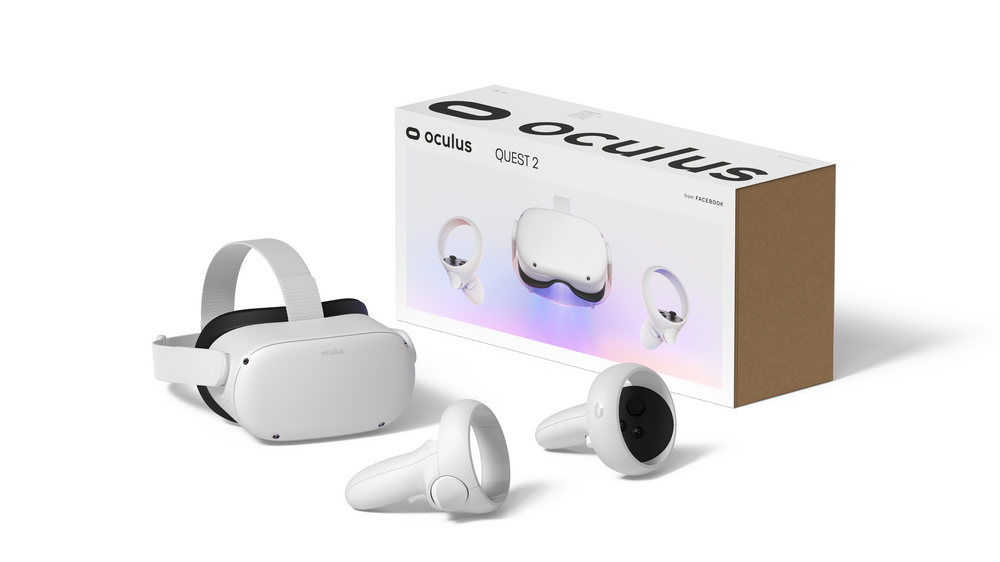Facebook Connect: It’s the End of an Era as Facebook Officially Kills Off PC VR
With the launch of its new $300 and fairly powerful Quest 2 VR headset, Facebook is moving strongly to own the VR space. The new Quest 2 headset is simply too powerful and too affordable to not dominate the VR hardware market and you can also use it as PC VR via the Oculus Link connection. That has some ramifications for Facebook’s investments in PC VR and the PC VR market segment in general. For Facebook has now also made it official it is will no longer build the PC-based Oculus Rift headsets.

During the Facebook Connect this week, the tech giant announced that due to the Oculus Link connection, it is ending all further development of the Oculus Rift family of PC-based virtual reality headsets. Facebook will now focus on its new standalone wireless Quest VR headset which will represent its future in its VR hardware play. The Quest is a wireless headset with sensors and processor integrated in the headset. By using the Link cable connection, users are also able to tap into the power of a full VR-ready PC. The Oculus Rift headset, on the other hand, does not have any processing unit built into the headset and must be linked to a VR-ready PC for this function. The Rift headset is, however, not as popular as the standalone Oculus Quest headset.
With the Quest 2, Facebook feels it finally has the headset that can kill two birds with one stone. On the one hand, it is a powerful standalone VR headset and on the other, you can plug to a VR-ready PC for a PC-connected play. It is one headset that offers VR enthusiasts “the best of both worlds” according to Oculus’ Rangaprabhu Parthasarathy.
As a standalone VR headset, Oculus Quest also offers end users an easier access to the technology than a PC-based device such as Oculus Rift or Rift S. The Rift S will be pulled back from the market in the course of the coming year.
However, it is noteworthy that the phasing out of PC VR headsets does not herald the end of the PC VR experience in general. Oculus Quest can still be interfaced with a VR-ready PC via an Oculus Link connection. Facebook has also promised to continue providing software support in the Oculus Store. The Oculus Link connection to Quest has spawned “significant growth” in the PC VR market. In spite of this, most of the virtual reality games presented during the Facebook Connect this week were primarily for Oculus Quest while the Medal of Honor: Above and Beyond, which has been under development for quite some time will be exclusively available for PC VR.
Facebook’s change in strategy from high-end virtual reality VR with Oculus Rift to accessible VR headsets with the standalone Oculus Quest headset did not come as a surprise. The sale of niche hardware in small quantities does not auger well for Facebook’s products that are supposed to be scaled up on a massive scale via software. As early as the fall of 2018, rumors were already swirling around that Facebook’s plan for a significantly improved Oculus Rift 2 has been cancelled, a decision that was reportedly decisive in the departure of Oculus co-founder Brendan Uribe from Facebook.
The move away from PC hardware also means that Facebook’s high-end virtual reality headset Half Dome, which is “almost finished”, and has been presented severally might also not appear in the current form. The device has too much technology for a standalone operation. Perhaps, bits of the Half Dome might make their way into Facebook’s future Quest headsets.
For high-end VR, manufacturers such as Valve, HTC, HP or Pimax could step in to fill the void left by Rift. These companies are already building higher quality PC-based VR headsets in their portfolio. However, this will only happen if the PC VR market continues to grow into the future even after Facebook pulls back investments in this market segment to focus on Quest.
The Oculus Quest 2 VR headset will be released from October 13 with two Touch controllers each. A 64GB version of the model will go for $300 and a 256GB version for $400.
At 1.1 lbs, it is 10% lighter than the original Quest headset. It is also a standalone virtual reality headset with built-in processing and sensors that detect the user’s hands and the environment. Like the original Quest headset, it will also be compatible with the Oculus Link connection that connects a Quest headset to a VR-ready PC and enables Quest users to tap into the vast Rift library of games and apps.
https://virtualrealitytimes.com/2020/09/19/facebook-connect-its-the-end-of-an-era-as-facebook-officially-kills-off-pc-vr/https://virtualrealitytimes.com/wp-content/uploads/2020/09/Oculus-Quest-2-600x337.jpghttps://virtualrealitytimes.com/wp-content/uploads/2020/09/Oculus-Quest-2-150x90.jpgBusinessOculusWith the launch of its new $300 and fairly powerful Quest 2 VR headset, Facebook is moving strongly to own the VR space. The new Quest 2 headset is simply too powerful and too affordable to not dominate the VR hardware market and you can also use it as...Sam OchanjiSam Ochanji[email protected]EditorVirtual Reality Times - Metaverse & VR
